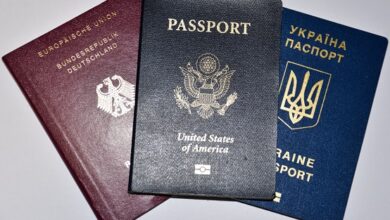What is False Dilemma composition Identification and Examples
False Dilemma
The false dilemma is a type of fallacy in which reality is reduced to two options, when there are many more . In other words, it is a type of incorrect reasoning that mistakenly reduces the alternatives to only two. This, of course, leads to errors of perception and decision.
There are several types of fallacies and the false dilemma belongs to a category called “informal fallacies” . These are incorrect reasonings that not only involve the form, but also the content and the context. The point is that in appearance and in natural language it is not possible to detect the error easily. For this reason, they often go unnoticed.
The fallacy of the false dilemma can appear in a myriad of situations. From everyday discussions to major life, business, political decisions, etc. The risk of this type of erroneous reasoning is that they are usually very well camouflaged and appear very logical in appearance .
What does it consist of?
In the false dilemma someone presents 2 or more options, commonly in response to a question or doubt, of these options one is presented as “good”, “the best” or “preferable” while the rest are presented as bad or undesirable to others. comparison. Clearly the goal is to get people to choose the “good” option for whatever reason the dilemma creator wants.
Identify the false dilemma
The etymological roots of the word dilemma help clarify the picture. This word comes from the Latin dilemma , composed in turn by the roots “di”, or “two”, and lemma , or ‘premise’. Therefore, it comes to be something like “two premises”. The false dilemma is configured when there are not only two premises, but many more, even if they are not known .
There are several types of false dilemma, although in essence they correspond to the same thing:
- Counterfeit Dilemma . It is the typical false dilemma. It takes place when in reality there is not even a real dilemma. For example: either you believe in god “X” or you are an atheist. Between one alternative and the other, there are multiple options.
- Fallacy of the excluded middle . It occurs when the options are three, but are artificially reduced to two. For example: either you are on the side of the owners of the company, or you are on the side of the workers. The reality is that at some points someone can be on one side and at others on the other.
- false dichotomy . In this case, two arbitrarily chosen options are proposed, as if there were no more. For example: homeland or death. This is valid for some, while other people do not understand that they must choose between one and the other.
- false opposition . When two options are contrasted that are not really mutually exclusive. For example: we bring more police to the streets, or we allow crime to win. The first is not the only option to avoid the second.
- false duality . In case there is no major difference between two concepts that want to be taken as divergent. For example: if you really loved your job, you would never complain. The love for work and the complaint are not mutually exclusive.
- False correlative . When two concepts that do not really have an objective relationship with each other come together. Either you fix the mirror you broke, or you’ll have seven years of bad luck.
- fork . It occurs when, in an artificial way, the same concept or the same reality is divided in two. For example: whoever believes in a religion cannot accept the existence of others. It is a false dilemma because one’s own belief has the same category as the other’s belief. Both are that: beliefs. Therefore, neither dominates.
Examples of false dilemma
To finish, some simple examples will be presented to specify the idea and image of these events, there are a wide variety of cases where it occurs, but these are perhaps some of the easiest to visualize.
Campaigns and propaganda
This is the first example of a fallacy against the person, as discussed before in political campaigns it is normal to use these dilemmas to position yourself positively and discredit the rival simultaneously, but advertising campaigns can also use this technique, in these cases they put 2 options, they and the competition in general and use phrases like “our detergent cleans 3 times better than the competition”.
Daily Dilemma Example
Some examples of dilemma that can occur in everyday life and come from ordinary people, can be someone trying to convince a group of something they want, suppose a group is looking to eat a restaurant and one of them suggests 2 places that They stay close, but he recounts a bad experience of one while praising the one who really wants to go.



